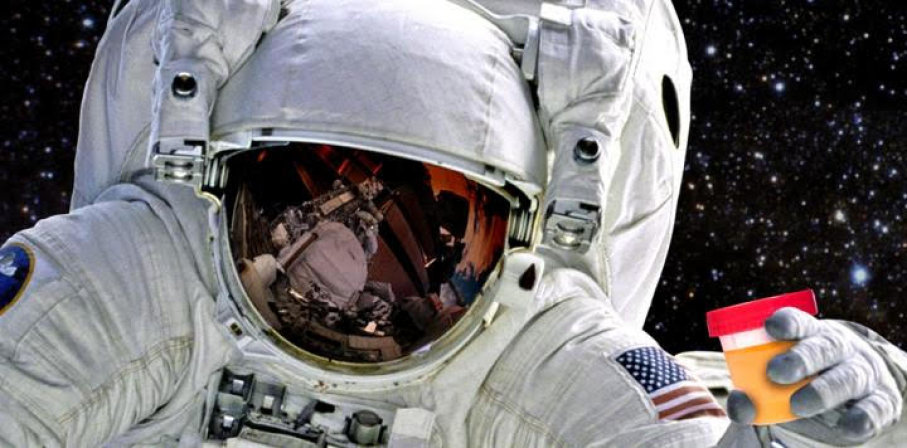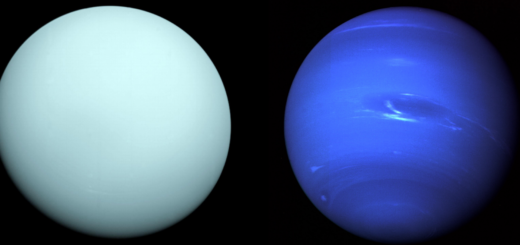Astronaut Pee and Yeast Could Revolutionize Our Future in Space

For humanity to become a multiplanetary species we need to become very good at reducing our consumption, reusing materials and recycling our waste. These three rules can be tough to achieve on Earth, but imagine trying to live by them in deep space, isolated inside a spaceship for months or maybe years. Suddenly reducing, reusing and recycling isn’t an option, it’s necessary for survival.
Currently, the astronauts and cosmonauts on board the International Space Station are using technologies that recycle urine into purified drinking water, but that’s just a drop in the bucket. According to new research presented at the 254th National Meeting & Exposition of the American Chemical Society (ACS) on Aug. 22, urine is so much more.
“If astronauts are going to make journeys that span several years, we’ll need to find a way to reuse and recycle everything they bring with them,” said Mark A. Blenner, in the accompanying release. Blenner’s an assistant professor of chemical and biomolecular engineering at Clemson University. “Atom economy will become really important,” he adds.
Blenner’s research focuses on the possibility of using microorganisms to convert the chemicals in urine and the carbon dioxide in exhaled breath into usable raw materials, like plastic. In other words, the chemicals pee contains wouldn’t simply be discarded as toxic byproducts in water purification systems (as they are on the ISS), they could become an invaluable resource to fabricate tools and to manufacture supplements that are essential for human survival.
No Interplanetary Hardware Stores
On Earth, it’s hard to imagine not simply going to the hardware store to buy a replacement part for a broken piece of machinery or damaged tool. Broken wrench? No problem! A replacement is waiting for you down the road. But break a wrench while in transit to Mars? Well, that’s a big problem. The nearest hardware store is millions of miles away, and you really need to tighten that bolt on the airlock …
This is where Blenner’s research comes in. During their trip, astronauts will produce waste. But to make the spacecraft’s “atom economy” as efficient as possible, all the urine will be collected and converted into water and other raw materials. And the key to making this a possibility seems to be yeast – the same stuff that ferments sugars into alcohol. But this yeast isn’t being used to produce beer, this microbe – called Yarrowia lipolytica – can be genetically modified to become the essential backbone to a healthy and capable human presence in space.
“Having a biological system that astronauts can awaken from a dormant state to start producing what they need, when they need it, is the motivation for our project,” he said.
Y. lipolytica requires carbon and nitrogen to metabolize and grow. These elements can be sourced from untreated astronaut urine, which contains urea (a molecule rich in nitrogen), and astronauts’ exhaled breath, which contains carbon dioxide that can provide the carbon. The carbon also can be extracted from the plentiful CO2 in the Martian atmosphere.
After experimenting with different strains, the researchers found that Y. lipolytica can produce monomers as a byproduct that can be converted into polyester polymers. This polyester can then be fed to 3-D printers, for example, to manufacture a range of plastic tools. Suddenly having a hardware store nearby isn’t as much of an issue.
Another strain of Y. lipolytica produces omega-3 fatty acids that long-duration space travelers will need to support heart, eye and brain health, said Blenner and his team. This is an important detail; omega-3 has a very short shelf-life, and any supplies brought from Earth on board a spaceship will be rendered useless quickly, so finding ways to produce this supplement in space is essential.
For now, the quantities of byproducts produced by Y. lipolytica are limited, but Blenner’s team is working to optimize production of polymers and fatty acids so they can be used as a plentiful resource for our exploration of the solar system.
So, the next time you flush the lavatory after taking a pee, consider the raw materials you’re flushing away. On Mars, that urine would likely be more valuable than gold.



 Creators of mankind
Creators of mankind Description of “Tall white aliens”
Description of “Tall white aliens” Where they came from?
Where they came from? About hostile civilizations
About hostile civilizations The war for the Earth
The war for the Earth “Tall white aliens” about eternal life
“Tall white aliens” about eternal life Video: “Nordic aliens”
Video: “Nordic aliens” Aliens
Aliens Alien encounters
Alien encounters The aliens base
The aliens base UFO
UFO Technology UFO
Technology UFO Underground civilization
Underground civilization Ancient alien artifacts
Ancient alien artifacts Military and UFO
Military and UFO Mysteries and hypotheses
Mysteries and hypotheses Scientific facts
Scientific facts


















